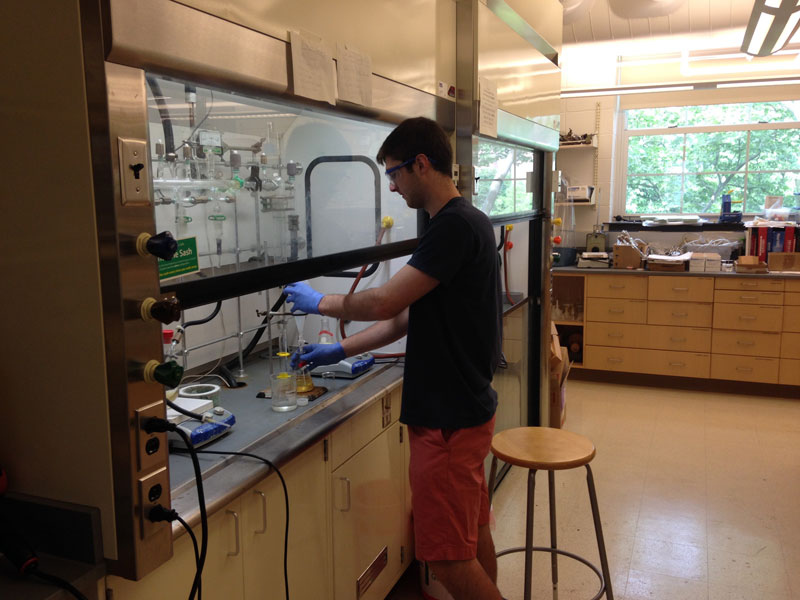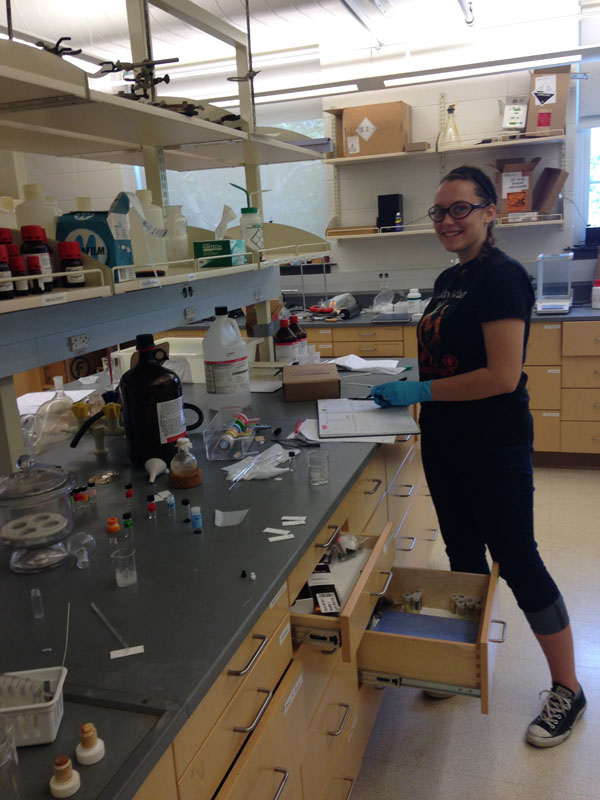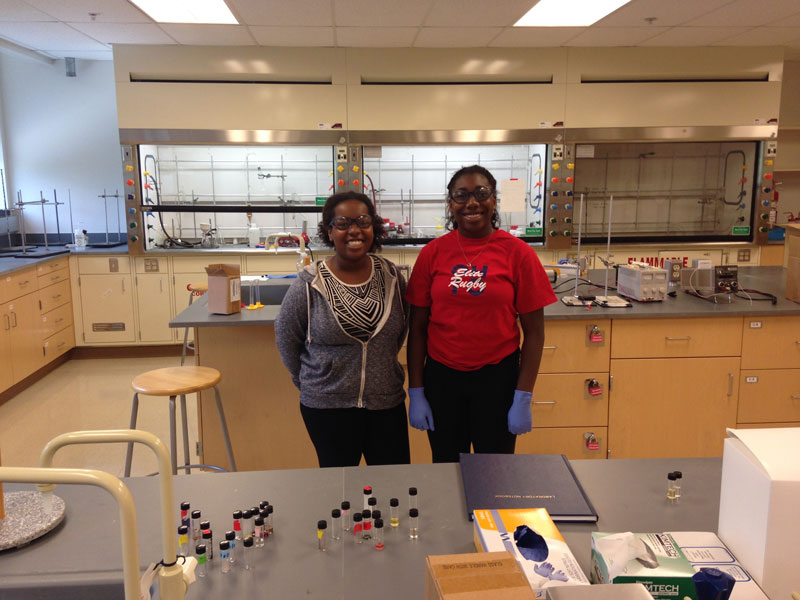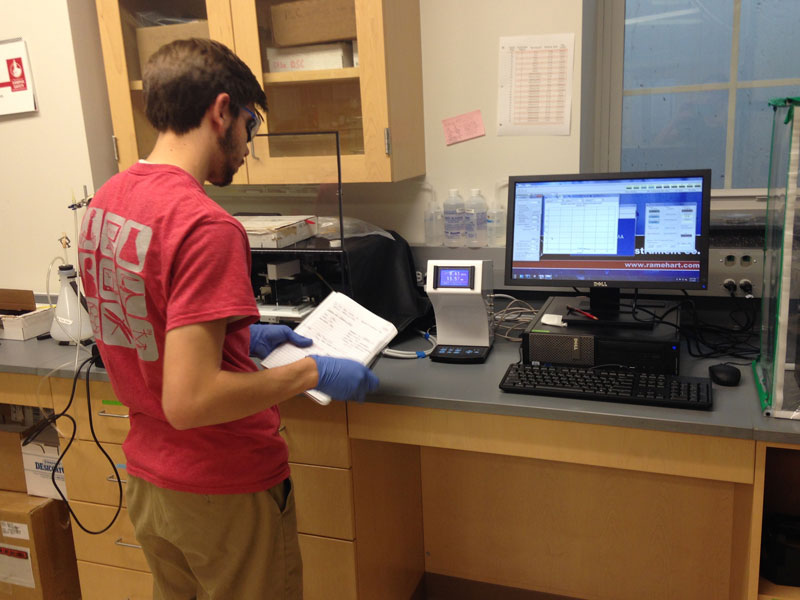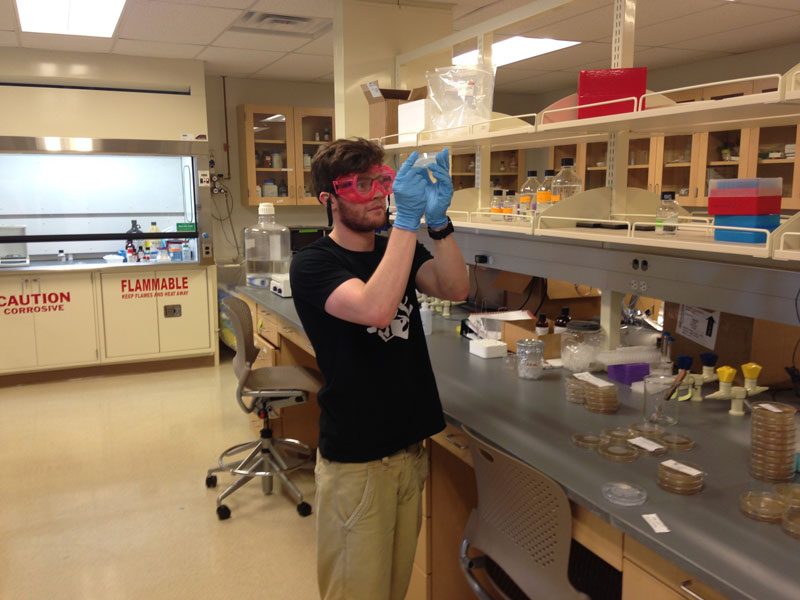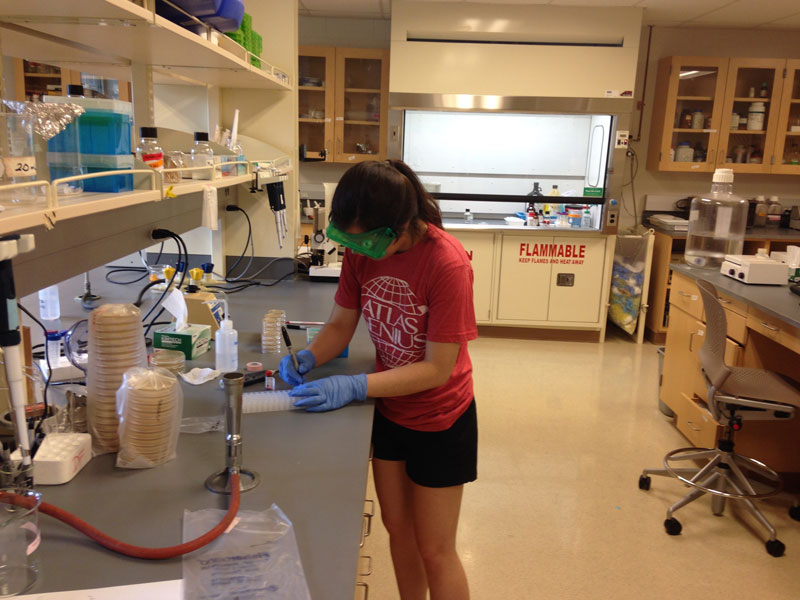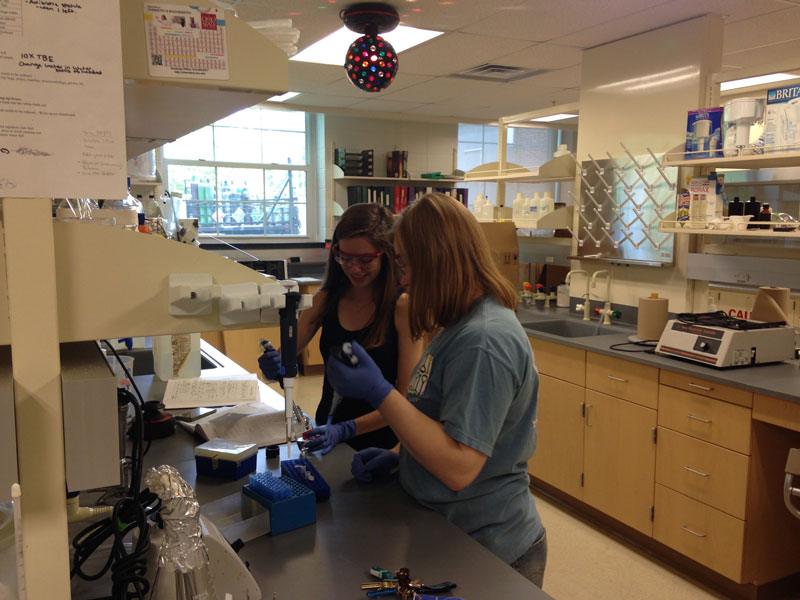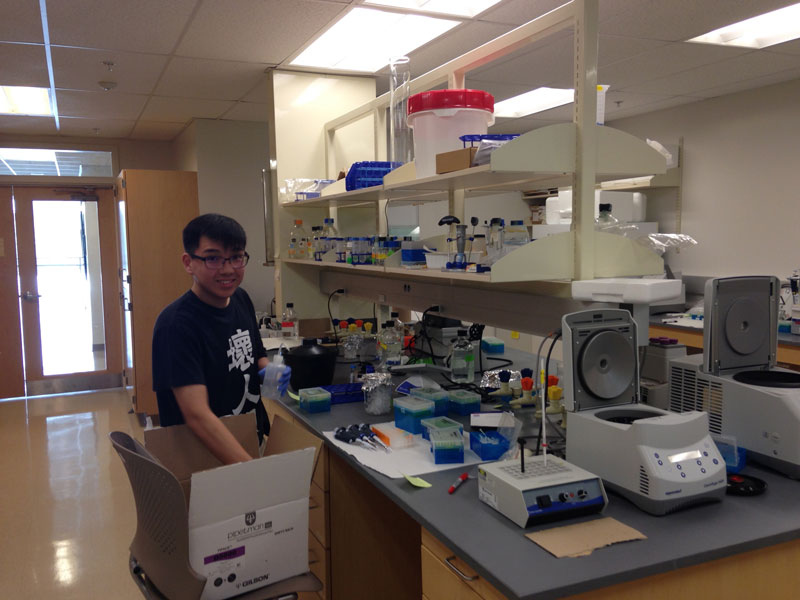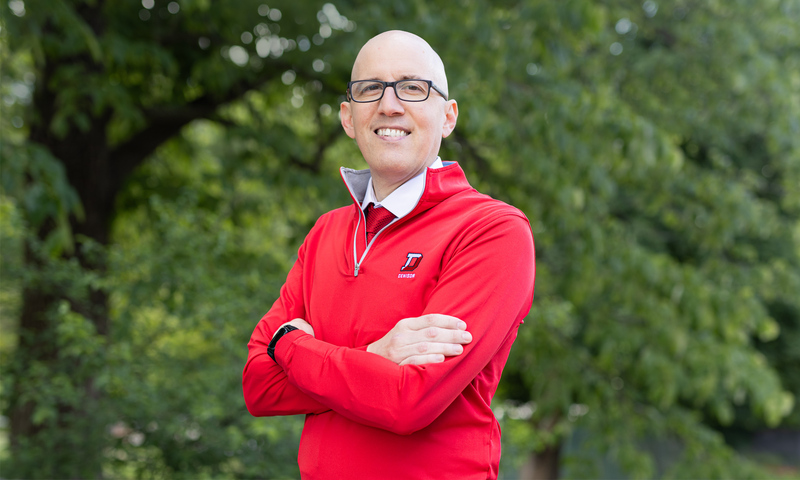This year, twenty-four summer researchers working in nine different labs are busy investigating the world at the molecular level.
Student-written research proposals sponsored by faculty members range in scope across the subfields of the chemical sciences. A sample of the many active projects this summer include “Introducing a Mutated LptD Protein to Burkholderia Cenocepacia to Increase Membrane Permeability”, “Increasing Efficiency of Cross Coupling Reactions Through Aromatic Donor-Acceptor Organocatalysis”, and “A Novel Approach to Improving the ELISA Assay for Urinary Exosome Detection.” Regardless of the success of the research goals outlined in a proposal, we all achieve constant hands-on learning in the lab and practice creative problem solving by moving our projects forward.
After a week or two of learning new protocols and measurement techniques, we are in the summer groove of asking questions, running experiments, and interpreting data. This process naturally leads to further questions and even more exciting ideas. All of our new ideas, results and analyses will be on display at the Summer Science Poster Session on September 8th. Several of our rising senior students will also continue into their research into the school year. Senior research experiences often culminate in formal department presentations, off campus presentations, and student-faculty publications. However, we don’t wait to present our results until the end of the summer. Tuesday Chem/Biochem summer research lunches are off to a strong start. Hungry bodies and minds are fed as we eat, listen, and discuss student presentations in an informal environment of students and faculty mentors. You can also find us presenting during Friday group meetings or taking about our research at the Lisska Center’s weekly research report dinners.
The summer research session spans ten weeks each summer. Students are funded through external grants obtained by faculty and through internal Denison funding. In addition to money for research supplies, research students receive a personal stipend and housing expenses.
